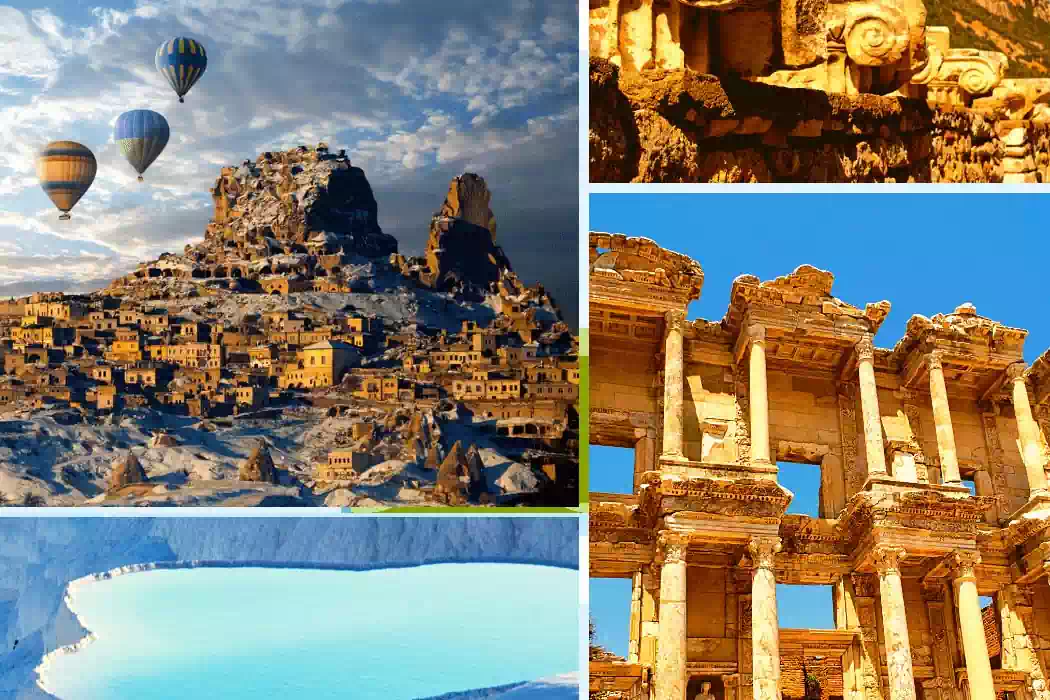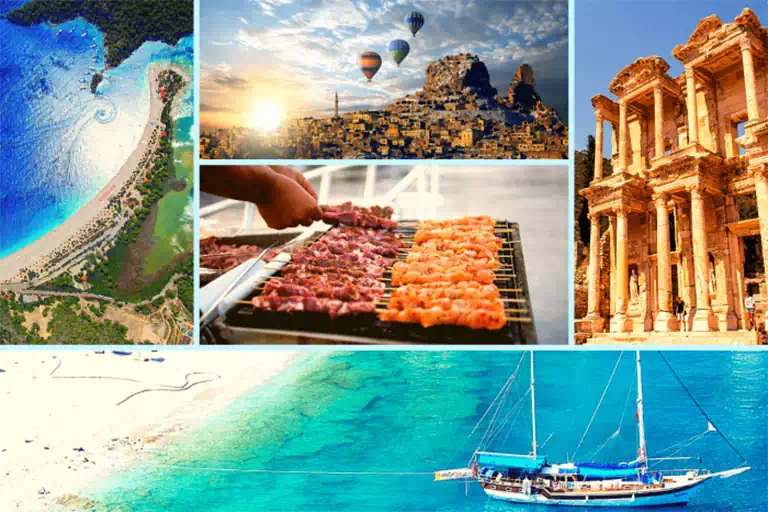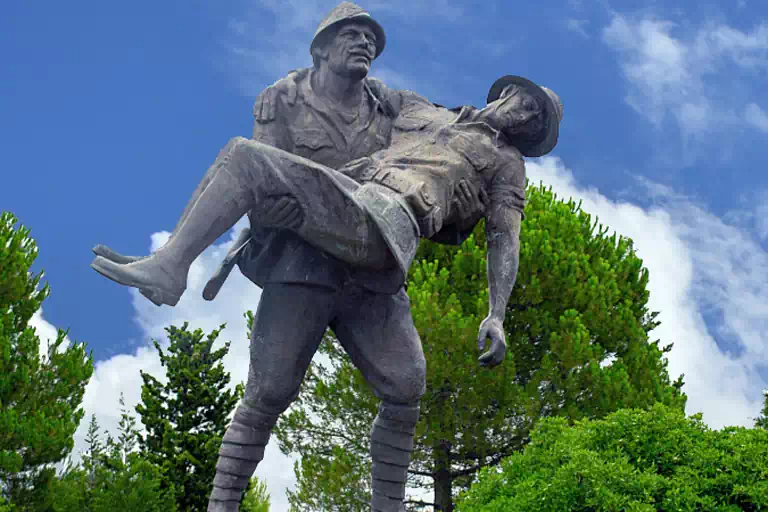1) Which currency is used in Turkey?
Turkish Lira is the local currency of the Republic of Turkey. Visitors can exchange their cash money for Turkish Lira at exchange offices and banks. Tourists can make use of your credit card as well as a debit card to make all sorts of purchases. It is nevertheless recommended to have some cash with you in case of a trip away from the city’s center or visit to smaller villages or towns.
2) Which time zone is Turkey in?
It is the daytime zone in Turkey located at the connection point between Asia as well as Europe can be described as GMT +3.
3) Where can I find information about visas and application requirements?
You can check https://www.konsolosluk.gov.tr/ekonsolosluk/ internet address to find out about visa application process. You can also obtain information from the Ministry’s website; http://www.mfa.gov.tr/sub.en.mfa?cc4e437c-6769-4d79-9017-10b63c651224 or get in touch with the Turkish missions in your country (please follow the link: http://www.mfa.gov.tr/turkish-representations.en.mfa).
4) Is Istanbul an easy city to travel around? What transportation choices are available?
Despite its dimension and the sheer many hills and rivers, Istanbul is reasonably easy to navigate around. There is a wide range of options for transport, such as minibus, dolmuş, tram metro, metrobus, and ferry. As mentioned previously, it is required for passengers to wear a face mask on public transport.
5) Can I use my driver’s license in Turkey?
A driver from outside the country is able to travel in Turkey using an EU license up to up to six months. Within six months the licence is required to convert it into the Turkish license. In Turkey you must be at least 18 years old to drive a car , and at least 16 years old to operate motorcycles.
6) Will National holidays effect our trip?
Making plans for your trip to ensure that there are no interruptions is simple. A checklist that covers all aspects , including the items to bring and weather conditions helps to prevent many things from happening.
One thing that people often overlook is the importance of religious and public celebrations and their impact on the impact the hours of operation of facilities and tourist attractions.
• January the 1st: New Year’s Day
• April 23rd: Sovereignty and Children’s Day
• May 1st: Labours Day
• May the 19th: Youth and Sports Day
• August the 30th: Victory Day
• October the 29th: Republic Day
The Grand and the Spice bazaars in Istanbul are closed during sacred holidays and also the public holiday on October 29 day. They are also closed every week on Sundays.
The Blue Mosque remains open on holy days, but prayers have higher attendance than normal therefore re-opening hours for visitors following prayer sessions could be delayed.
It is important to note that a lot of museums across the country have already set a Monday as the day to be closed. Even though they close for a half-hour on religious holidays or if you’re taking a trip on the road or simply staying for an overnight it could limit the time you have to go to the tourist attractions.
If you’re planning to visit Turkey during the date of voting for an election in general, the majority of places and facilities will be operating, however it is prohibited by law for bars and restaurants to serve alcohol until the vote has officially ended.
If you’re located in Turkey in the month of Ramadan You should be aware of those nearby who might be fasting. Food and drinks are accessible throughout the day. However, do not consume food or drinks on public transports or while walking along the streets. You can sit down in a cafe or restaurant to enjoy meals or snack.
Although it’s not a religious holiday, Independence Day on October the 29th is a celebration of color due to the fact that it is a day when the Turkish flag is displayed on windows, balconies and everywhere it is possible! Based on where you live you are, there could be parades, music festivals and other events planned.
7) What is the best time to visit Turkey?
Istanbul is an urban area that is open all year long, so anytime is a good time to explore. If you are looking for sunshine go between April and October, as the winter season in Istanbul is often wet and cold with the occasionally snowfall.
The tourist season along The Aegean as well as Mediterranean coasts runs from May to October . However, tourist destinations such as Ephesus are accessible throughout the year. Gulet cruises are more enjoyable when they are refined during the months of June through September.
Cappadocia is an area that is operational throughout the year, but during winter the snowfalls are common. The snow provides beautiful views of the landscape and hot air balloon tours will continue to operate for as long as the weather conditions allow.
If you are traveling between December and March, make sure you have an umbrella since this is the time of year when the country gets the greatest amount of rain.
8) How many museums are there in Istanbul?
Istanbul is home to more than 80 museums that range from archeological museums, historical museums, modern and fine art galleries in addition to thematic museums
9) How many seas are there in Turkey?
The Turkish peninsula is covered in 4 seas that include The Mediterranean towards the South and to the south, Aegean in the west as well as the Sea of Marmara between the European and Asian land masses and the Black Sea to the north. The entire coastline stretches more than 8,000 km (approximately five thousand miles) in length.
10) How is the weather in Turkey?
The zones of climate observed throughout Turkey include the Mediterranean Climate where the summers are dry and hot and winters are mild and humid and rainy; the Black Sea Climate where summers are cool, while winters are warm in the coastal region and cold and snowy in the upper regions; and the Terrestrial Climate, where the temperature variations between winter and summer as well as night and day are significant as well as The Marmara Climate showing the characteristics of a transition in climate between and the Terrestrial, Black Sea and Mediterranean climates.




